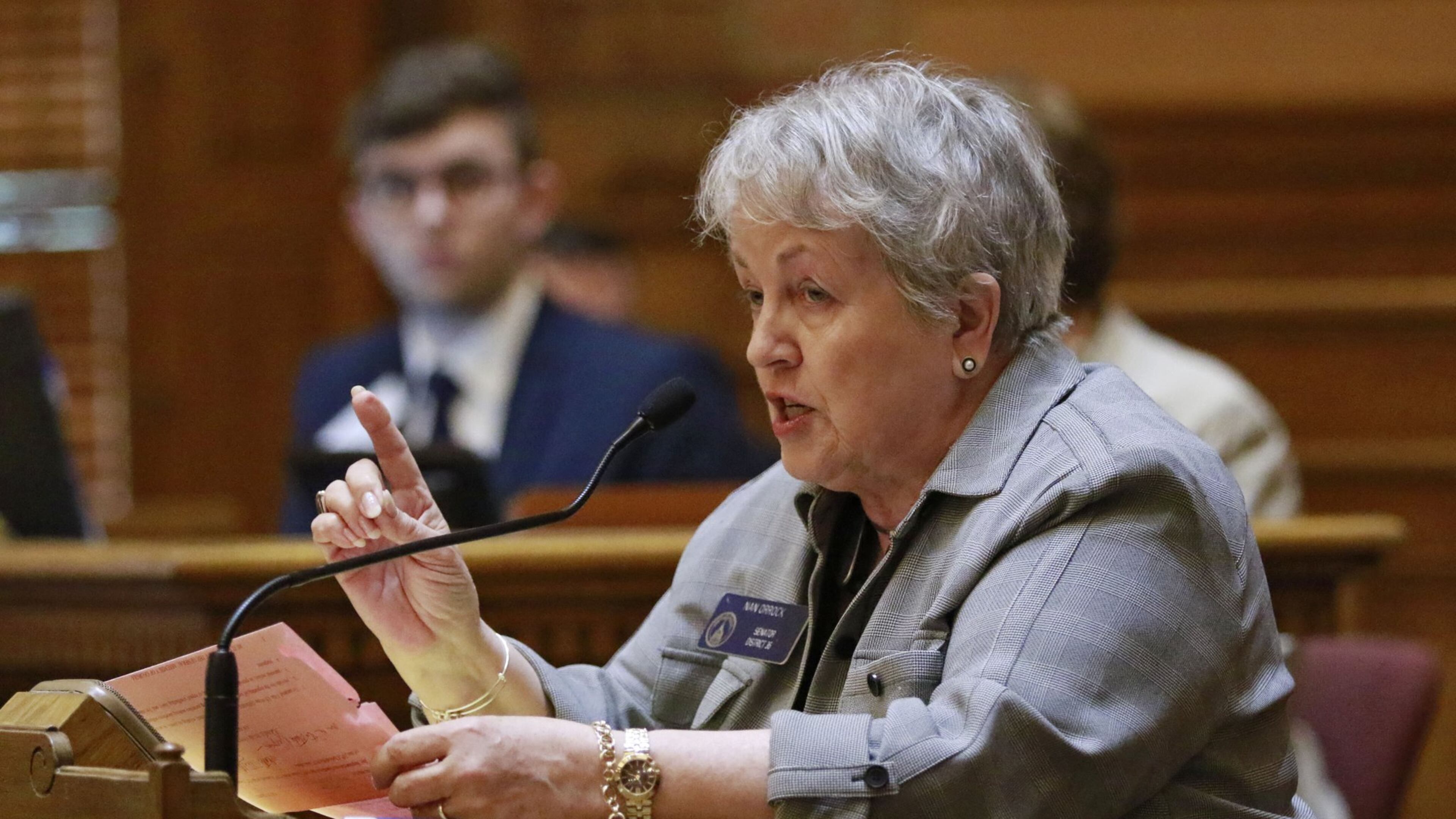Report: Bill to give state retirees benefit boost would cost Georgia $5 billion

Tens of thousands of retirees from state government jobs in Georgia haven’t received a cost-of-living pension increase in more than a decade, and a new audit report could dim their chances of getting one consistently in the future.
The report from the state auditor estimates that proposed legislation granting state government retirees the same annual 3% raises that former teachers now receive would cost $523 million in the first year and $5 billion over 20 years.
The $523 million is more than the state spends on its court system, on promoting agriculture and other businesses, on prekindergarten programs, on issuing driver’s licenses. It’s three times what the state spends investigating crimes and almost twice what it spends on public health care.
State House Appropriations Chairman Terry England, R-Auburn, who has been supportive of giving state retirees a boost, said the costs would be less, but he is skeptical the General Assembly will pass a measure backed by Senate Democrats to mandate a 3% annual cost-of-living adjustment for state government retirees.
“I am not going to say no,” England said. “I think we’re going to look at it.”
State Sen. Nan Orrock, D-Atlanta, sponsor of Senate Bill 167, the pension bill, said Georgians who worked for state agencies were promised cost-of-living raises for decades before they were ended during the Great Recession.
“If there is a political will to keep the promise made to our retirees, there is a way to make it happen,” Orrock said. “State retirees spent their entire work life with the state of Georgia based on the promise that despite the low pay, they were going to have security in retirement. That is the question that we are facing.”
About 54,000 Georgia pensioners receive checks from the Employees’ Retirement System, which they, and the state, have paid into. The average pension is about $26,400 a year.
For decades, state pensioners got the same 3% annual increase in their checks as retired educators, but that ended in the late 2000s, when pension systems were hit hard by dips in the stock market and lawmakers made changes to the program. The teacher pension COLA is prefunded through higher payroll deductions, while the one for state employees was not, pension officials say.
England and other lawmakers have in recent years made it clear to the ERS board that they wanted it to grant bonuses to retirees to make up for the lack of COLAs.
But bonuses are one-time checks that have to be approved — or not — by the ERS board each year. A cost-of-living raise would be built permanently into how much retirees receive from their pension.
The difference is significant. A $30,000-a-year pension in 2009 would be worth more than $44,000 next year if ex-state workers had received the same COLA as Georgia’s retired educators.
The Georgia State Retirees Association, which represents state pensioners, has unsuccessfully lobbied the General Assembly to include money in the budget to jump-start the COLAs.
As in any pension system, the payouts that former state staffers receive vary, based on their length of service and top salaries while on the job. Lower-paid workers, such as prison guards, receive much smaller pensions than somebody who retired after running a state agency and was making a big salary.
Pensioners can also receive Social Security.
While some former employees receive six-figure pensions, ex-state patrolmen, agricultural inspectors, staff secretaries and child welfare workers are more likely to receive payouts in the range of $15,000 to $30,000 a year.
Orrock’s bill comes at a time when state government and the state pension systems have seen finances improve dramatically. Pension systems saw their assets skyrocket with gains in the stock market after the start of the COVID-19 pandemic.
The teachers’ retirement system, for instance, in October reported having $104.8 billion in assets. Around the time the state was first hit by COVID-19, the market plummeted and that number was closer to $65 billion.
The state ran a $3.7 billion surplus in fiscal 2021 — which ended June 30 — and tax collections continue to climb as the economy grows. State officials are also beginning to make moves to spend some of the $4.8 billion the state is expecting in federal COVID-19 relief funding that congressional Democrats approved in March.
All of that leaves Jim Sommerville, president of the Georgia State Retirees Association, with the impression that COLAs for state pensioners are “doable,” despite the big number in the auditors’ evaluation report.
“The actuarial evaluation study raised several questions in my mind,” said Sommerville, a former Environmental Protection Division staffer who retired in 2010. “The bottom line to me is that this evaluation appears to be a worst-case scenario.”
England said the cost may be closer to $40 million this year and then compounded each year the cost-of-living increase is given. Under Orrock’s bill, that would be every year.
The appropriations chairman isn’t sure that will happen. First, he said, since Orrock’s bill calls for the appropriation of state money, it would need to start in the House, not the Senate, so it probably wouldn’t be considered. And secondly, the ERS board, he said, should be making COLA decisions based on the soundness of the pension system, not through legislative mandates.
An alternative might be for retirees to get a one-time cost-of-living increase, rather than a mandated annual one. That, in a year when the state is relatively flush, may be doable.
“I think the bigger issue is for (retirees) to understand is if we do it this year, it doesn’t mean they are going to get it next year,” England said. “I don’t see a bill coming to fruition because I think it’s something that should be managed by the (ERS) board.”



